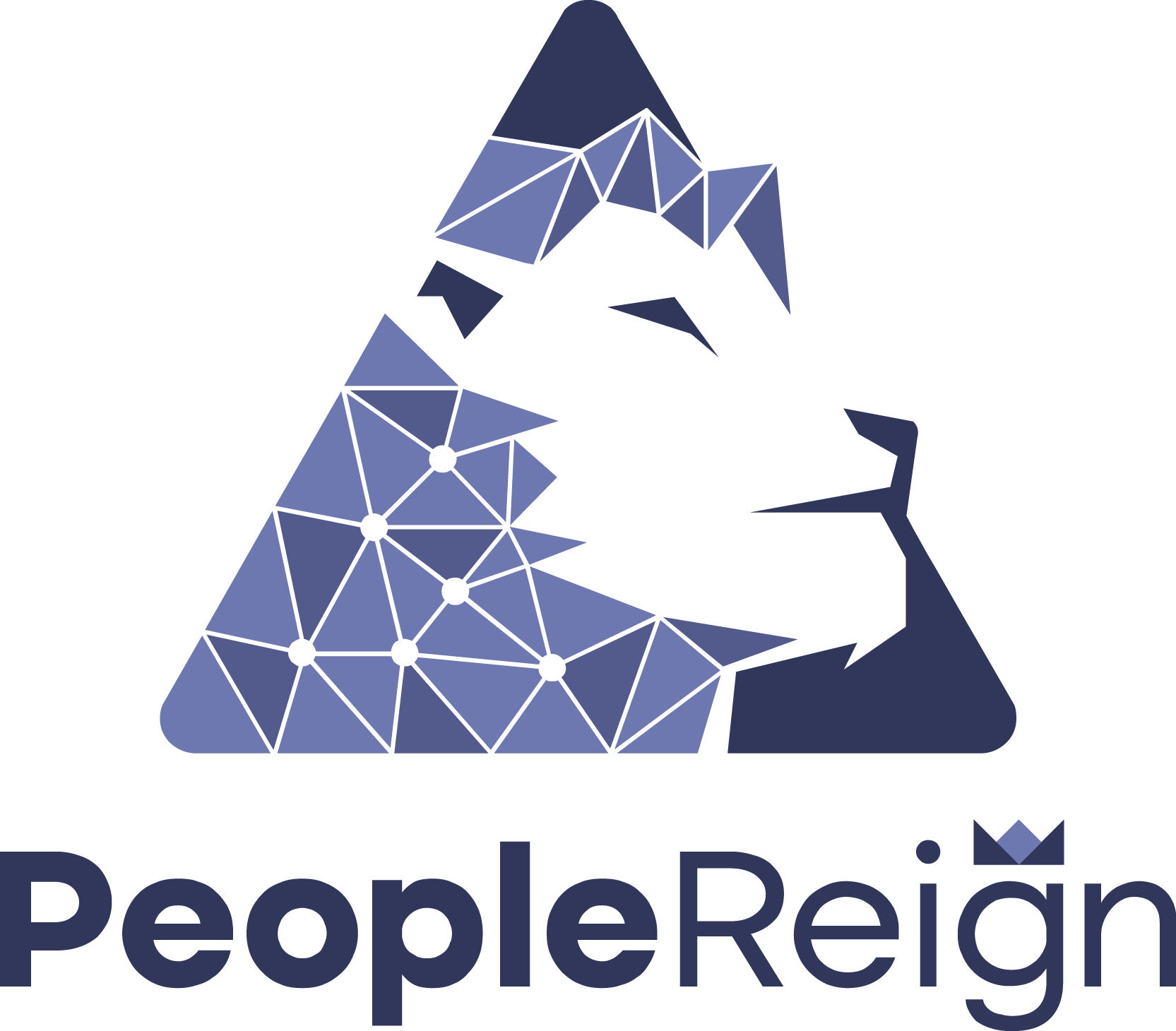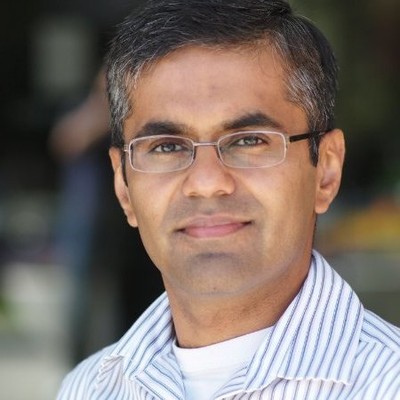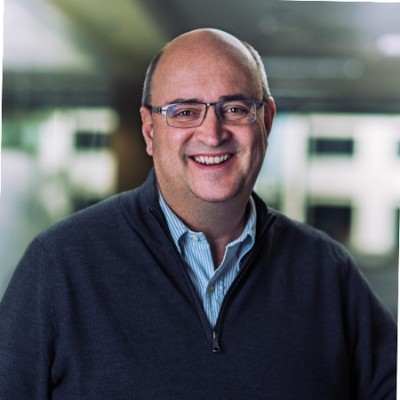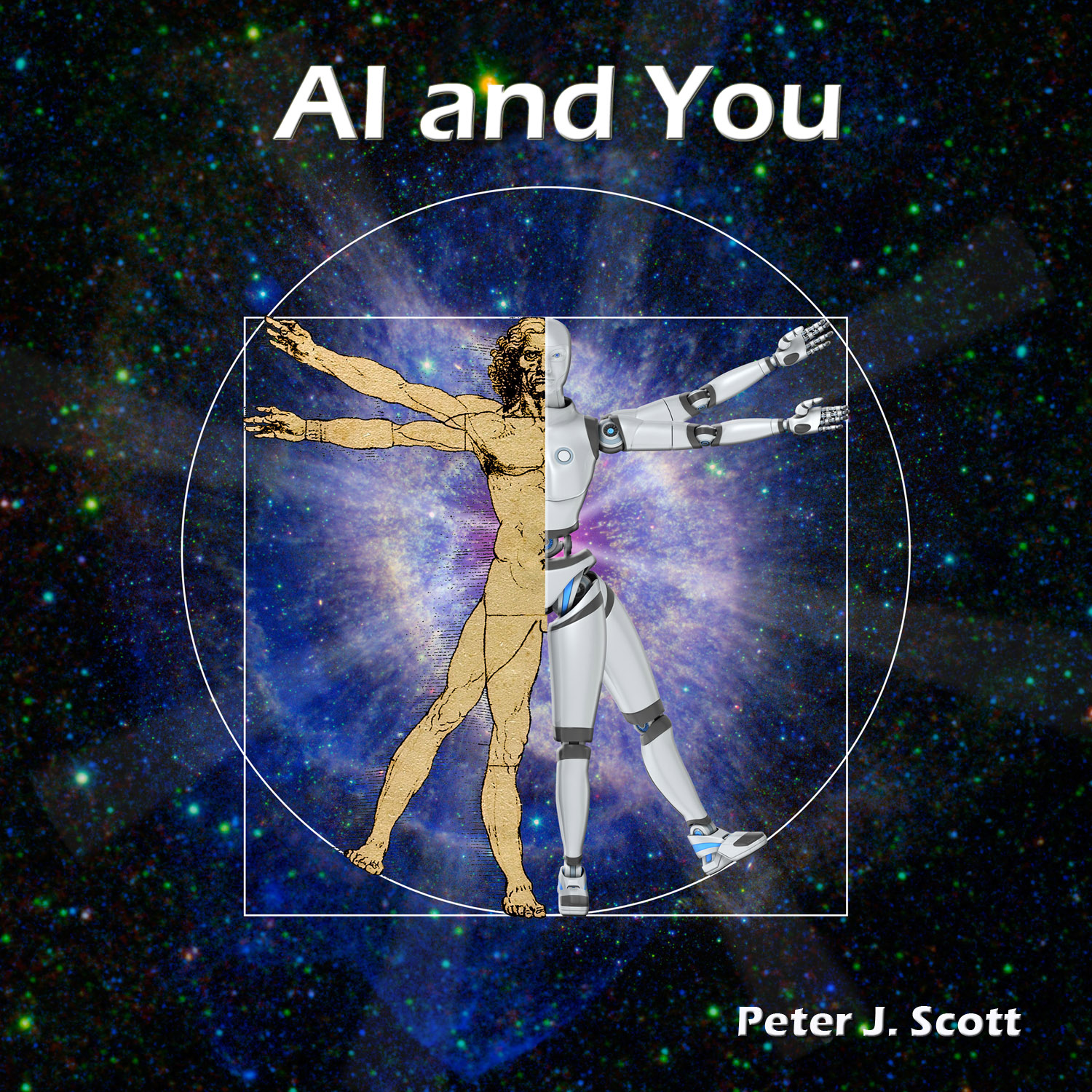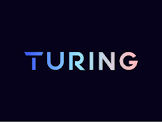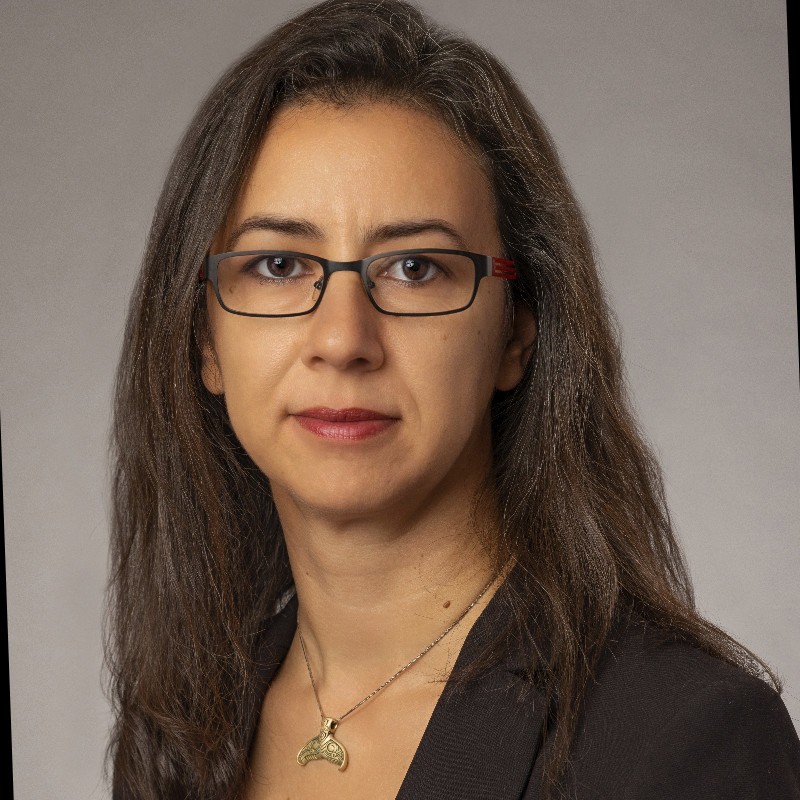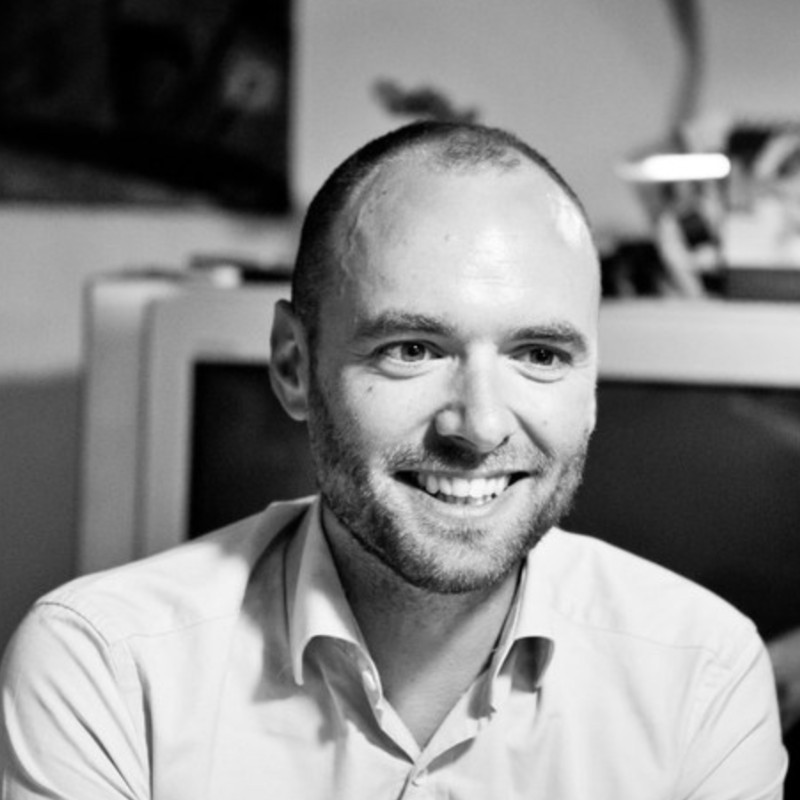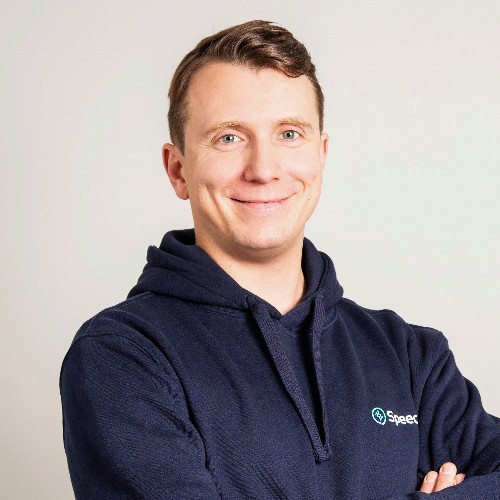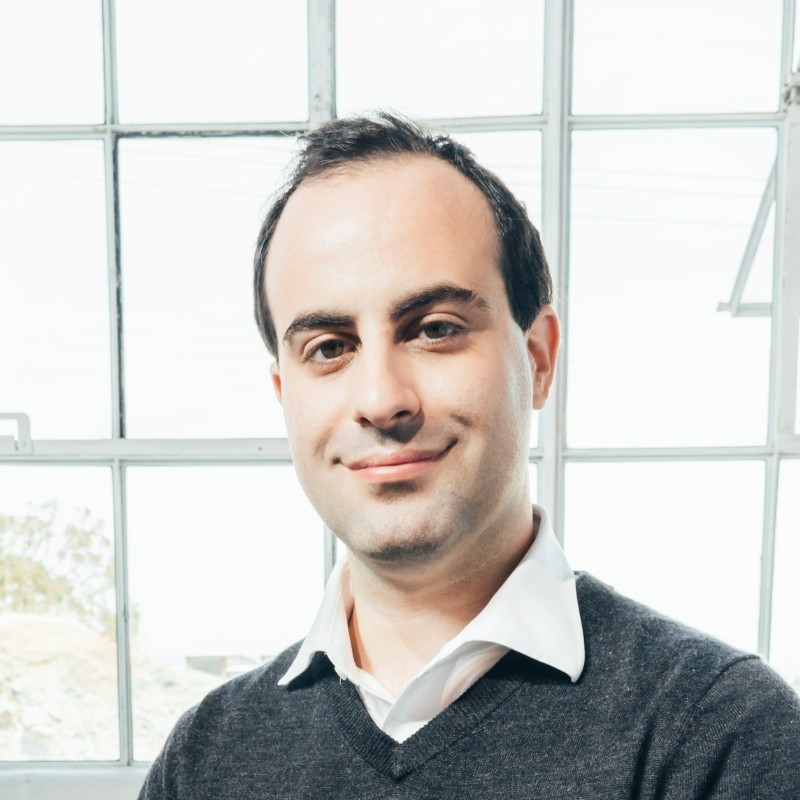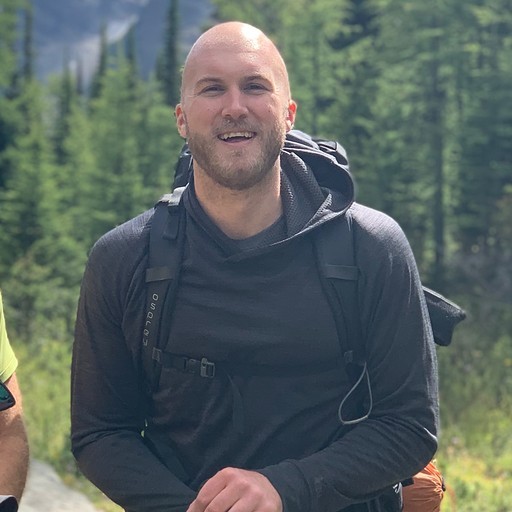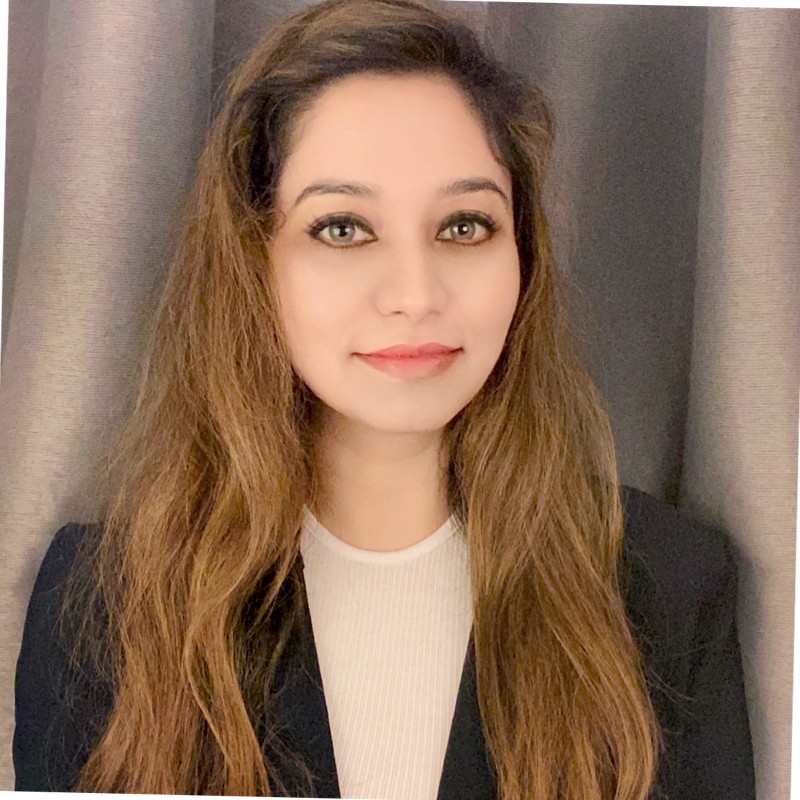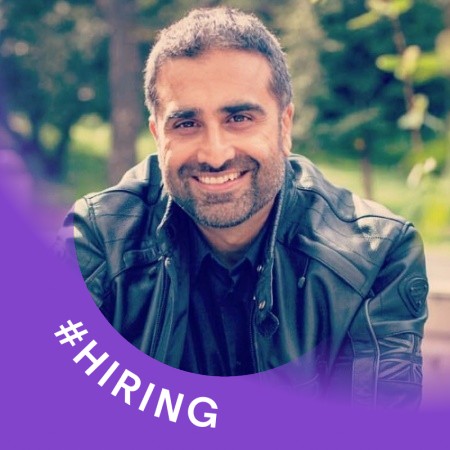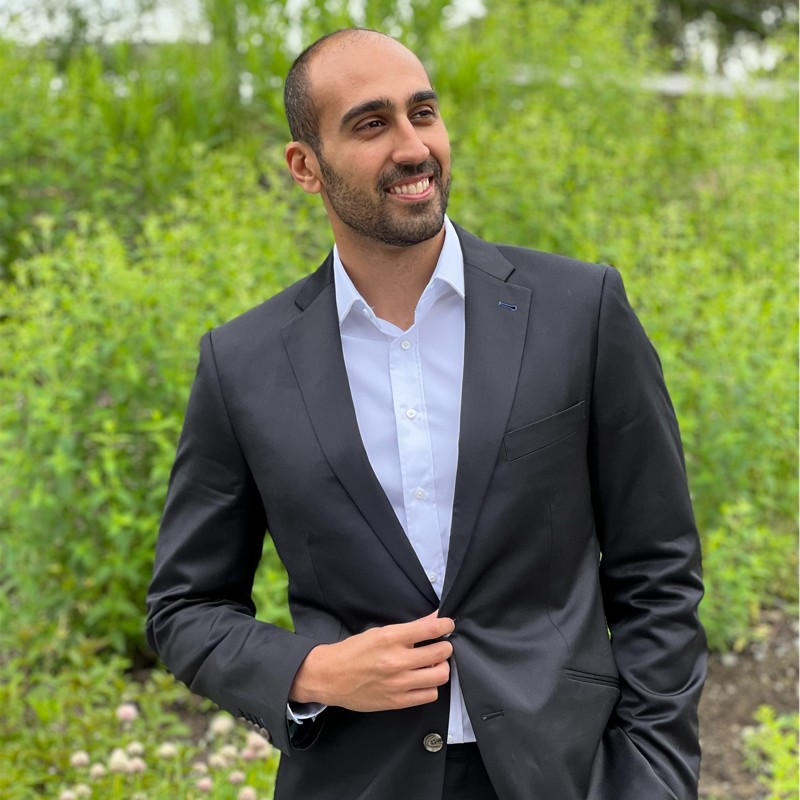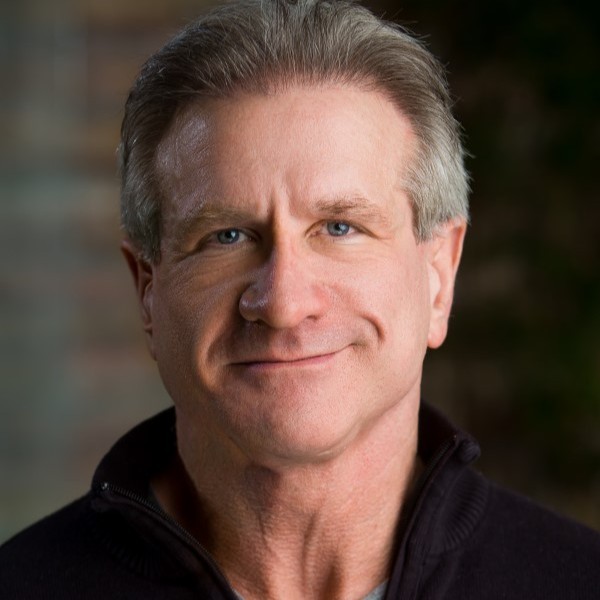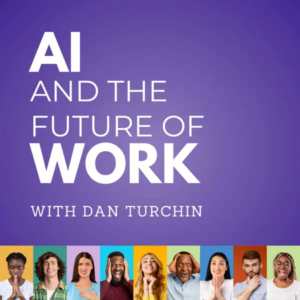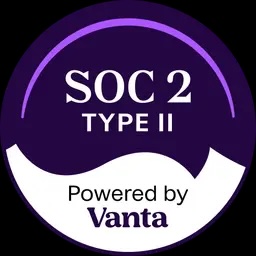AI and the Future of Work
-

Episode Number : 153
Binny Gill started his career as a programmer after studying CS and Engineering at IIT Kanpur and later UIUC, University of Illinois Urbana-Champaign.
Show moreShow lessHe then had an impressive eight-year run as a technology leader at Nutanix, the hyper-converged infrastructure company, eventually becoming its CTO for cloud services. In January 2021, Binny left Nutanix to start Kognitos based on a bold vision to make everyone a programmer. In this discussion, we learn about his journey and how generative AI just may change everything.
Thanks to Steve Kaplan for the intro to Binny.
Listen and learn:
- Binny’s inspiration for starting Kognitos: “…why should humans need to think like machines… when machines can now think like humans?”
- What makes programming so hard.
- Why the future of programming is using natural language to describe the features you want.
- How computing interfaces restrict us from communicating like humans when programming.
- Why Binny says “generative AI is the new electricity.”
- The most important leadership lesson Binny learned working alongside iconic leaders at IBM.
References in this episode:
-

Episode Number : 152
Today’s guest belongs on the Mt. Rushmore of amazing female leaders we’ve interviewed on this podcast. Daphne and I met in November while co-presenting at the HMG Strategy event in New York City.
Show moreShow lessDaphne’s energy is infectious. Her passion for inspiring leaders was obvious on stage and even more obvious when we met afterward. Daphne’s new book Win When They Say You Won’t: Break Through Barriers and Keep Leveling Up Your Success became an instant best seller. Listen to this one, and you’ll understand why.
Before becoming an author, Daphne started The Board Curators to help others prepare for serving as paid company directors. She serves on numerous boards, including AMN Healthcare and Masonite International. Earlier in her career, Daphne was a serial CIO serving in IT leadership roles at companies including IBM, Johnson & Johnson, Pfizer, and GE Healthcare.
Listen and learn…
- Daphne’s remarkable path from poor kid in rural Illinois to global CIO
- How to overcome racial bias as a black female
- The subtle ways bias infiltrates organizations
- Where imposter syndrome originates… and how to conquer it
- How to “version your life” to adopt a growth mindset
- How to use Daphne’s EDIT process to achieve your goals
- Why DEI “won’t be a thing any more” in a decade
References in today’s episode…
-

Episode Number : 151
This is one of my favorite episodes of the year. It’s our third annual long, strange trip into the mind of a Silicon Valley legend. Dave Kellogg is one of the best marketers, CEOs, tech provocateurs, and board whisperers around.
Show moreShow lessHe was an executive at iconic companies like SAP, MarkLogic, and Salesforce turned investor and board director who is now an executive in residence at Balderton Capital.
In this episode, we discuss, well, just about everything that matters for the tech economy… startup growth metrics, generative AI, how to get funded in 2023, and of course, our favorite jam band.
Listen and learn:
- What Dave got right… and not so right… in his 2022 predictions
- How startups can survive downturns
- How to fix the problems at Salesforce, Amazon, and Facebook
- What single theme will characterize 2023 in Silicon Valley
- What will happen to startups that raised massive rounds in 2021
- Why virtual companies won’t outperform companies built around hubs in tech centers
- What’s ahead for consumption-based pricing and PLG
- Why generative AI poses an existential threat to Google
References in this episode:
- Dave’s (excellent) blog
- Peter Fishman, Mozart Data CEO, on AI and the Future of Work
- Derek Steer, Mode co-founder, on AI and the Future of Work
- How ChatGPT can detect Alzheimer’s disease
-

Episode Number : 150
Carter Busse has been leading IT organizations for more than two decades. He has been an IT leader at successful, high-growth organizations ranging from Salesforce to MobileIron to 8×8 to Cohesity Among his many accolades, he was recently named a 2022 ORBIE Bay Area CIO of the year and was also the first IT leader hired at Salesforce back in 2000.
Show moreShow lessCarter understands the challenges of managing tech infrastructure for high-growth tech companies where there’s zero margin for error because everyone thinks they know tech better than you. CIOs are like plumbing: nobody appreciates them when everything’s working but they’re the first to get blamed when there’s a blockage.
He’s now the CIO of rising star Workato, the integration automation platform that has raised more than $400M, was most recently valued at nearly $6B, and has about 1,000 employees in 13 offices around the world.
Listen and learn…
- What a CIO does.
- Why CIOs have the shortest tenure in the C-suite.
- The role of AI to improve employee experiences.
- How to recreate the Apple Genius Bar at work… for at-home employees.
- How generative AI will be used in the enterprise.
- Key questions to ask when evaluating new uses of AI.
- How CIOs deliver strategic value and avoid being “technology traffic cops”.
References in this episode:
-

Episode Number : 149
Darren Murph has been Head of Remote at GitLab for 3.5 years and has been a part of its rise to prominence. His leadership helped shape GitLab’s remote-first culture. GitLab went public in 2021 and has about a $7B market cap. It’s one of the leading DevOps platforms and has grown its team to more than 2k employees.
Show moreShow lessBefore GitLab Darren has been an entrepreneur, journalist, and author. Oh, and by the way, he holds one of the most awesome records in the Guinness Book of World Records.
Listen and learn:
- How to make work an organizational principle instead of a perk or policy
- What a Head of Remote does… and why every company will soon hire one
- Why there’s no such thing as “hybrid” work
- The number one mistake organizations make when transitioning to remote work
- How remote-first teams make the most of in person team
- How GitLab uses the personal “readme” to help remote employees get to know each other
- How to Zoom happy hours with “community service hours”
- How Darren earned his place in the Guinness Book of World Records
References in this episode…
-

Episode Number : 148
Today’s episode first appeared on Peter Scott’s (excellent!) AI and You podcast.
Peter Scott and David Wood are two of the most recognized AI futurists. Both are respected authors, speakers, and visionaries. Peter is a popular TEDx speaker and long-time NASA engineer. David was recently named one of the “top 100 most influential people in technology”.
Show moreShow lessToday’s discussion is a must-listen in which we discuss the future of technology, the future of work, and the future of humanity. In this one, Peter hosted and the three of us had a round table discussion about everything from generative AI to sentience. Let us know what you think after listening. Our DMs are open on Twitter and LinkedIn.
Listen and learn…
- Where AI won and lost in 2022
- Our predictions for AI in 2023
- What will the impact of ChatGPT be on the future of technology
- What tasks are best-suited for generative AI
- How we’ll regulate generative AI when it spews nonsense
- What is artificial general intelligence (AGI) and when we’ll achieve it
- What is sentience and are today’s bots sentient?
- How and where the US AI Bill of Rights falls short vs. AI regulation in the EU
- What we should be doing to systematize the practice of responsible AI
References in the episode:
-

Episode Number : 147
We’ve met some brilliant product minds on this show over the years. If you’re a long-time listener you hopefully enjoyed discussions with legends like Phil McKinney, former CTO of HP, and Philippe Cases, founder and CEO of Topio Networks, among others. Today’s guest belongs on that list.
Show moreShow lessRich and I first met when he was starting UserVoice around 2010 and I was at ServiceNow. I love his approach to innovation. He pioneered the idea that listening to customers can be as easy as adding a feedback tab to every web page back when all that existed were clunky survey tools. Today, thousands of sites use the widget he invented.
He’s now out to make meetings more productive by helping attendees focus on conversations while an app transcribes them and offers simple buttons to annotate what’s happening. It’s obvious once you’ve used Fathom that this is the future of meetings.
Rich White is not only a serial innovator but also a repeat entrepreneur who has raised from a group of exceptional investors over the years and was part of the YC Winter 2021 batch. Enjoy!
Listen and learn…
- As a product expert and innovator, how to know when you’ve found “an itch worth scratching”
- What is “product-market fit” and how to know when you’ve achieved it
- What is a viral coefficient and how do you calculate it
- How the “jobs to be done” framework led Rich to develop the key feature of Fathom
- The hardest problem Fathom has solved… has nothing to do with voice transcription
- How Fathom trains developers to practice responsible AI
References in this episode:
-

Episode Number : 146
Special episode this week! We recorded two live discussions from Turing’s BOUNDARYLESS “Future of Work” event in San Francisco. In the first, Rani Mavram , Complete.so CEO, discusses using data to transform compensation policies from being a liability to an asset for high-growth companies. In the second, Ankit Jain , Aviator CEO, discusses using automation to improve developer productivity for remote-first engineering teams.
Show moreShow lessListen and learn…
- From Rani Mavram:
- Why compensation policies have an outsize impact on employee engagement
- What’s required to make compensation plans transparent
- The difference between compensation plans and “total reward” packages
- Where innovation is happening in the field of employee compensation
- From Ankit Jain:
- How to make remote-first engineering teams successful
- Using automation to improve developer productivity
- How startups can replicate the developer experience at Google and Facebook
- The future of generative AI and GitHub Copilot in assisting human developers
References in today’s show:
- Turing’s BOUNDARYLESS event
- Complete.so for compensation transparency
- Aviator to improve developer productivity
-

Episode Number : 145
Merve Hickok is one of the most recognized thought leaders in the emerging field of AI ethics. Merve is the founder of AIethicist.org and Lighthouse Career Consulting. Her work is at the intersection of AI and data ethics along with social justice and DEI policy and regulation.
Show more
Merve was recently listed among the top 100 most brilliant women in AI ethics and in the past she lectured at the University of Michigan’s School of Information on Data Science ethics. Merve’s at the forefront of this emerging field that will define how we live and work for the next several decades. This is an important conversation. Enjoy!Show lessListen and learn…
- What led to Merve founding AIEthicist.org
- How the AI ethics conversation has evolved over the past year
- What the White House got right (and wrong) in the blueprint for an AI Bill of Rights
- What responsible AI means to Merve
- Why regulation doesn’t necessarily constrain innovation
- How AI policy and regulation are different around the world
References in this episode…
-

Episode Number : 144
Emmanuel Turlay spent more than a decade in engineering roles at tech-first companies like Instacart and Cruise before realizing machine learning engineers need a better solution. Emmanuel started Sematic earlier this year and was part of the YC summer 2022 batch. He recently raised a $3M seed round from investors including Race Capital and Soma Capital. Thanks to friend of the podcast and former guest Hina Dixit from Samsung NEXT for the intro to Emmanuel.
Show moreShow lessI’ve been involved with the AutoML space for five years and, for full disclosure, I’m on the board of Auger which is in a related space. I’ve seen the space evolve and know how much room there is for innovation. This one’s a great education about what’s broken and what’s ahead from a true machine learning pioneer.
Listen and learn…
- How to turn every software engineer into a machine learning engineer
- How AutoML platforms are automating tasks performed in traditional ML tools
- How Emmanuel translated learning from Cruise, the self-driving car company, into an open source platform available to all data engineering teams
- How to move from building an ML model locally to deploying it to the cloud and creating a data pipeline… in hours
- What you should know about self-driving cars… from one of the experts who developed the brains that power them
- Why 80% of AI and ML projects fail
References in this episode:
-

Episode Number : 143
Kevin Mulcahy, co-author of the Future Workplace Experience, has been thinking and writing about the future of work since 2016. Six years ago the future of work was dramatically different. Reading Kevin’s book makes him seem like a clairvoyant who predicted the future.
Show moreShow lessIn addition to being a successful author Kevin is a sought after speaker on all topics related to the future of work and workplace trends. In the past, he also lectured on entrepreneurship at Babson College.
Listen and learn:
- What HR teams need to know about delivering great employee experiences
- How Airbnb created a culture of measuring and improving the employee experience
- What are progressive employers doing to make the transition back to office work easier
- The three “soft leadership” questions every manager should get great at asking
- How to measure the quality of employee experiences
- How AI can be used to detect changes in tone in employee engagement
- Where to start when using AI to improve the employee experience
- How the metaverse will improve remote work
References in this episode:
- Twitter boss Elon Musk fires the entire ethics team as one of his first acts of “leadership”
- Charlene Li on AI and the Future of Work
- Gary Bolles on AI and the Future of Work
- Mark van Rijmenam on AI and the Future of Work
- Burn In: A Novel of the Real Robotic Revolution by P.W. Singer and August Cole
-

Episode Number : 142
Today’s guest is the co-founder and CEO of vAIsual, the company pioneering the use of generative AI to create synthetic stock media. All of those photos you see online and in print publications of people promoting products usually are human models posing in generic ways. Their pictures are sold by companies like Getty Images in marketplaces that are inefficient and limited in scope.
Show moreShow lessMichael Osterrieder and his partner Nico are legends in the world of stock media who realized there’s a better way. They created what they call an algorithmic camera and launched vAIsual last year to scratch their own catch. Michael is a serial entrepreneur and photographer based in Budapest and he’s out to test the limits of generative AI.
Listen and learn:
- How growing up listening to heavy metal inspired Michael’s career in visual media
- What are the challenges of using generative AI to create synthetic stock images of people
- How visual media content creation has evolved
- The ethics of generative AI
- What Michael describes as “the biggest art heist in history”
- How vAIsual extends human photos using machine vision and human labeling
- Can an AI be the owner of copyrighted material it produces?
- What is the definition of consciousness?
References in this episode…
-

Episode Number : 141
Otto Soderlund co-founded Speechly in 2016 with Hannes Heikinheimo in their hometown of Helsinki. He believes voice should be a first-class citizen for all apps and making it easy for developers to add voice support from any platform will unlock new innovation.
Show moreShow lessSpeechly is a member of the YC Winter 22 batch. Otto and I recently co-presented at the VOICE22 event in Washington DC although I presented remote so this is the first time we’re actually meeting. I heard good things about his talk so I was eager for this discussion. It didn’t disappoint.
Listen and learn…
- Why voice is the new app and what it means to develop “voice-first” apps
- How RAIN Agency uses Speechly to help auto technicians use voice assistants to fix cars
- How to accurately detect and transcribe speech when dealing with common challenges like background noise and accents
- When speech detection achieved “superhuman” levels of accuracy
- How Speechly combines speech recognition with natural language understanding (NLU) on the local device
- How Otto thinks about exercising responsible AI
- Why “voice technology won’t exist as a separate field in a decade”
References in this episode…
-

Episode Number : 140
Jonathan Frankle Jonathan Frankle, incoming Harvard Professor and Chief Scientist at MosaicML, is focused on reducing the cost of training neural nets. He received his PhD at MIT and his BSE and MSE from Princeton.
Show moreShow lessJonathan has also been instrumental in shaping technology policy related to AI. He worked on a landmark facial recognition report while working as a Staff Technologist at the Center on Privacy and Technology at Georgetown Law.
Thanks to great guest Hina Dixit from Samsung NEXT for the introduction to Jonathan!
Listen and learn…
- Why we can’t understand deep neural nets like we can understand biology or physics.
- Jonathan’s “lottery hypothesis” that neural nets are 50-90% bigger than they need to be…but it’s hard to find which parts aren’t necessary.
- How researchers are finding ways to reduce the cost and complexity of training neural nets.
- Why we shouldn’t expect another AI winter because “it’s now a fundamental substrate of research”.
- Which AI problems are a good fit for deep learning… and which ones aren’t.
- What’s the role for regulation in enforcing responsible use of AI.
- How Jonathan and his CTO Hanlin Tang at MosaicML create a culture that fosters responsible use of AI.
- Why Jonathan says “…We’re building a ladder to the moon if we think today’s neural nets will lead to AGI.”
References in this episode…
-

Episode Number : 139
Eric Olson , CEO and co-founder of Consensus, is a collegiate athlete turned data scientist turned entrepreneur who needed faster access to reliable data while working at DraftKings. Consensus is a search engine that uses a large language model to find answers in peer-reviewed research articles. Eric’s living proof that the best entrepreneurs start by solving a problem they’ve encountered. Hear how Eric’s scratching his own itch.
Show moreShow lessListen and learn…
- Why Google isn’t the answer for scientists seeking evidence-based answers online
- Why a business model that relies on ads can’t solve the “unbiased answer” problem for researchers
- How Consensus addresses the problem of conflicting information online from credible resources
- How to use labels to improve search retrieval accuracy… without introducing bias into results
- How to use extractive large language models (LLMs), to extract relevant portions of documents and match them to NLP questions
- Why generative AI like GPT-3 can’t answer “what’s the consensus opinion out there” when multiple potential answers exist
- Who is responsible if Consensus delivers answers that lead to harmful outcomes
- What Eric learned as a division I NCAA athlete (Go Wildcats!) that has helped him as a high-tech entrepreneur
References in this episode:
-

Episode Number : 138
Mona Akmal , CEO of sales intelligence platform Falkon, is the outspoken co-founder behind an emerging leader in a hot space. Mona migrated to the United States at age 20 with a CS degree and little else. She had an impressive 12-year run as a product leader at Microsoft where she helped scale OneDrive and Office. She subsequently led product and technology organizations at places like Code.org and Amperity. Two decades later, Mona’s the CEO of Falkon AI, an intelligence platform for go to market teams. Falkon recently raised $16M from a group of A-list investors that includes Greylock and Madera among others.
Show moreShow lessListen and learn…
- Why Mona’s philosophy revolves around two words: “efficiency” and “excellence”
- What makes a standout sales rep great.
- How do find signal in noisy sales and marketing data
- How many touches are required from stage one to closing a B2B deal
- How to fix the CRM data hygiene problem
- Why econometrics approaches perform better than machine learning to solve the “small data problem”
- Why “everyone needs to be coached and nobody needs to be managed”
- Mona’s (legendary) mental health advice to entrepreneurs
References in this episode…
- Barr Moses from Monte Carlo on AI and the Future of Work
- Derek Steer from Mode on AI and the Future of Work
- Peter Fishman from Mozart Data on AI and the Future of Work
- Stephen Messer from Collective[i] on AI and the Future of Work
- Kamal Ahluwalia on AI and the Future of Work
- Leading scientists fear AI could lead to nuclear war by the end of the century
-

Episode Number : 137
Hina Dixitl , venture capitalist leading AI investing at Samsung NEXT, grew up in a small town in India from humble beginnings. She couldn’t afford a Starbucks coffee and graduated with significant student debt… which fueled her passion for mentoring and coaching as she became financially independent.
Show moreShow lessPrior to Samsung NEXT, Hina was an Apple engineering leader who helped launch two-factor authentication and other core iOS technologies. Hina’s a reluctant venture investor having always been a builder. A mentor from Homebrew encouraged her to pursue investing and she’s now passionate about finding and funding the next generation of AI and web3 entrepreneurs.
Listen and learn…
- How Hina overcame institutional biases to achieve success in engineering leadership roles and venture investing
- How being trusted with money at a young age by her father helped Hina become independent and confident in her career
- The challenges Hina faced transitioning from a builder at Apple to an investor at Samsung NEXT
- What Hina looks for when investing in AI and web3 startups
- Where there are opportunities for innovation in web3 and metaverse infrastructure
- What will prevent Big Tech from centralizing the decentralized web
- How Hina thinks about responsible AI when evaluating new investments
- How and when entrepreneurs should engage corporate venture capital (CVC) firms
- The AR/VR technology Hina wants to invest in… her inbox is open 🙂
References in this episode:
- Paul Lee, Synesis One CEO, discusses AI, web3 and crypto for gaming on AI and the Future of Work
- Krishna Gade, Fiddler CEO, discusses AI explainability on AI and the Future of Work
- Barr Moses, Monte Carlo CEO, discusses data pipeline monitoring on AI and the Future of Work
- Bindu Reddy, Abacus AI CEO, discusses training and managing data models on AI and the Future of Work
- How Jack Clark is incorporating AI ethics into new AGI research
-

Episode Number : 136
Rana Gujral , CEO of Behavioral Signals since 2018, joined the company after a distinguished tech career growing companies like Logitech, TiZE, and Cricut. Behavioral Signals uses emotion and behavioral science to help contact center agents deliver better service. Rana and the team are on a mission to improve customer interactions by using signals other than the spoken word to understand exactly what they need based on indicators like voice tone and pitch.
Show moreShow lessListen and learn…
- How to train AI models on past service interactions and outcomes to determine which agents should speak to which customers
- How to use deep learning and NLP to process non-speech behavior signals like intonation, pitch, and tonal variance
- How behavior signals can be used to predict stress, duress, and propensity to buy or pay
- How to achieve high levels of prediction accuracy without processing “the spoken word”
- Why tone and pitch are better indicators of sentiment than actual words across any language
- How to compete with Google/Microsoft/Amazon for data when building an AI-first conversational intelligence product
- The biggest opportunity Rana sees to use AI to help humans live better lives
References in this episode:
- Mahesh Ram from Solvvy (now Zoom) on AI and the Future of Work
- Gadi Shamia from Replicant on AI and the Future of Work
-

Episode Number : 135
Ahmed Elsamadisi built the data infrastructure at WeWork before realizing every company could benefit from his team’s innovation. Traditional star schemas aren’t the best way to manage data. Ahmed instead pioneered a new approach using a single-table column model better suited for real questions people ask. He launched Narrator in 2017 to make it easier to turn data questions into answers and has since raised $6.2M from Initialized Capital, Flybridge Capital Partners, and Y Combinator. Ahmed received his BS in Robotics from Cornell. Hear from a pioneer (and tech provocateur) how new data wrangling techniques are making it easier for mere mortals to get more value out of their data.
Show moreShow lessListen and learn…
- How a roboticist who got his start building self-driving cars and designing missile defense systems ended up redefining how data is stored
- Why traditional approaches that require SQL to access data are broken
- How a single-column schema eliminates the complexity of joining systems and tables
- Why it’s easier to tell better stories with data using temporal relationships extracted from customer journeys
- Why Snowflake, Redshift, and BigQuery are really all the same… and data modeling is the place to innovate
- What it means to replace traditional tables with activities… and why they’ll eliminate the need for specialized data analysts
- How to reduce data storage costs by 90% and time to generate data insights from weeks to minutes
- Why data management vendors are responsible for bad decisions made using your data
- What is data cleaning and how you should do it
- What is a racist algorithm
- Why querying data with natural language will never work
- Is the WeCrashed version of Adam Neumann’s neuroticism accurate? Hear from someone who lived it…
References in this episode:
- Google’s LaMDA isn’t sentient
- Chandra Khatri from Got It AI on AI and the Future of Work
- Derek Steer from Mode on AI and the Future of Work
- Barr Moses from Monte Carlo on AI and the Future of Work
- Peter Fishman from Mozart Data on AI and the Future of Work
-

Episode Number : 135
Seth Earley is a Chemist by training and an expert on AI. Specifically, how AI is used to improve knowledge management. In fact, he wrote the book on the topic titled “The AI-Powered Enterprise” in which he explains the importance of ontologies when applying AI. Seth is the CEO of Earley Information Science. He has been advising companies on technology strategy since 1994 and is currently focused on AI and knowledge engineering.
Show moreShow lessListen and learn:
- Seth’s contribution to AI history… including the term he coined that was co-opted by former IBM CEO Ginni Rometty
- Why all AI is a data (and information architecture) problem
- How the Applied Materials field services team reduced time spent finding information by 50% with knowledge engineering and ontologies
- Why proper information architecture is required for virtual agents to reduce call volume and help live agents
- What has changed since Seth first published his AI book in 2020
- The benefits of semantic search vs. traditional keyword search
- Where to start with a knowledge management strategy
- Why “data scientists spend more time being data janitors”
- How to mitigate the impact of bias in AI training data
References in this episode:
- How AI can detect employee burnout
- The Innovation Delusion on Amazon
- Earley Information Science
- The AI-Powered Enterprise on Amazon
- Kevin Dewalt, Prolego CEO, on AI and the Future of Work
